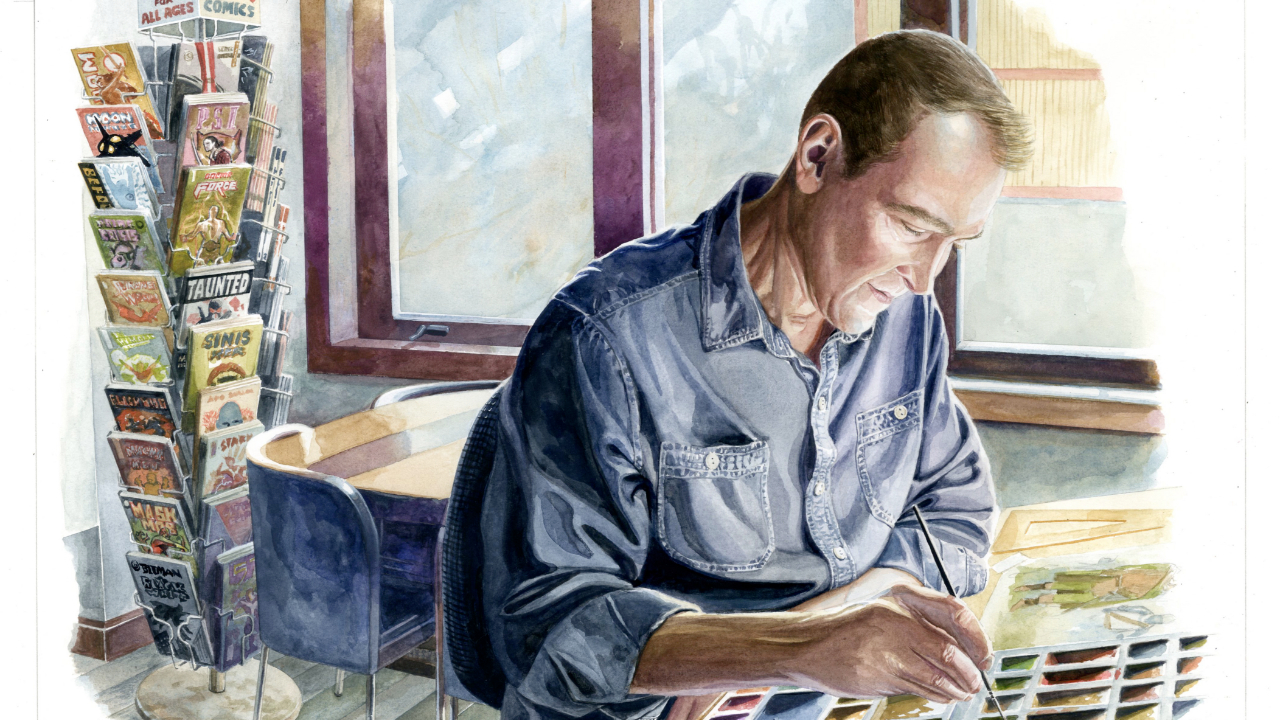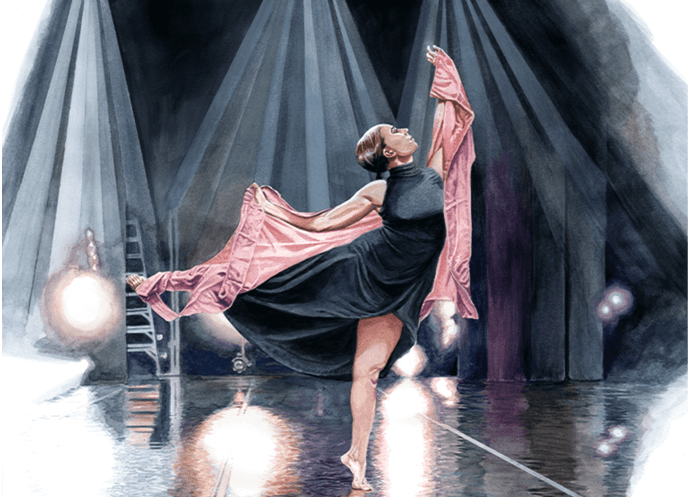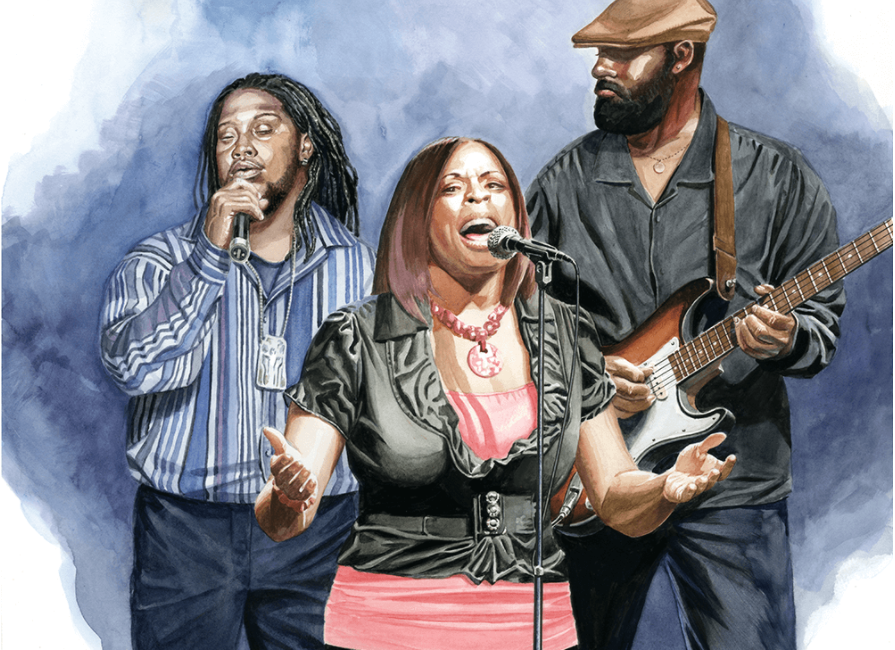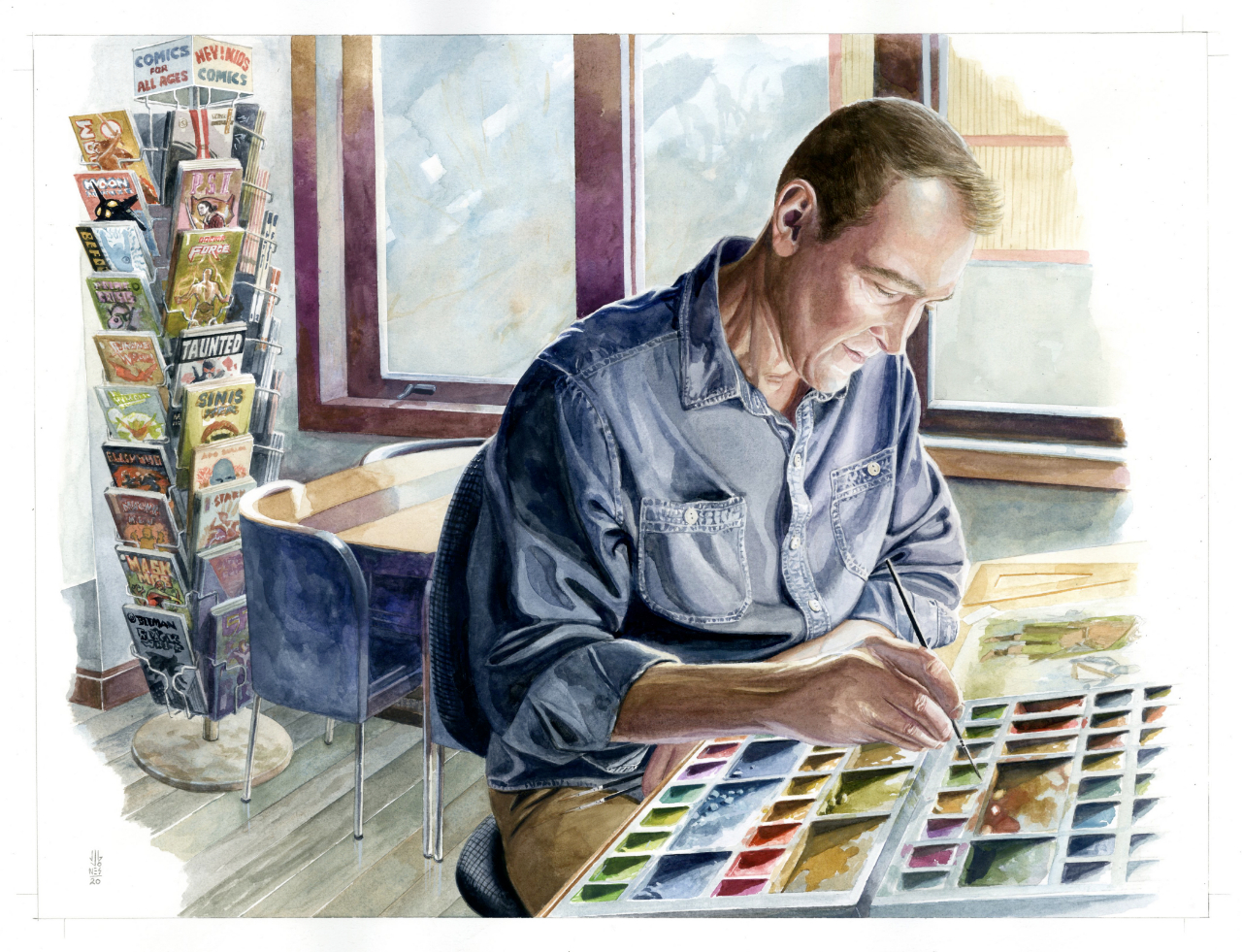Superstar artist J.G. Jones uses his art to raise awareness about rare disease
The Final Crisis artist battles a rare blood disease MPNs and illustrates his struggle and the struggle of others

Along with all of the accomplishments artist J.G. Jones can list on his resume — from his Eisner award nominations, to his 25 years of acclaimed interior and cover work, to his groundbreaking 52 covers for DC's famed 52 weekly series — the artist has taken on a whole new creative challenge related to his own health.
Through a series of paintings titled 'Rare Reflections: MPNs Unmasked,' Jones is helping to raise awareness about rare blood cancers called myeloproliferative neoplasms, or MPNs, by interviewing and painting survivors of the disease.
The paintings include a self-portrait because Jones himself was diagnosed with an MPN about 10 years ago. As comic book fans may remember, the health crisis prevented Jones from finishing Final Crisis with Grant Morrison.
But by taking a key role in his own health care and treatment, Jones has been able to continue working over the years. Although he took a recent break for a stem cell transplant, he's back at the drawing table and counts himself among the survivors he's illustrating now.
So far, Jones has created several illustrations for the project that can be found online at voicesofmpn.com. He also participated in a short documentary video about his own experience as an MPN patient.
With September being Blood Cancer Awareness Month, Newsarama talked to Jones about the 'Rare Reflections' project, the message he's hoping to share about MPNs, and what else he's working on now.
Newsarama: Jeff, it sounds like you've taken your health challenges and turned your energy toward a creative project. How has this allowed you to come back after your battle and share some of your story?
Comic deals, prizes and latest news
Get the best comic news, insights, opinions, analysis and more!
J.G. Jones: It's offered me an opportunity to share what I've been going through by talking about not only myself but what other patients with myeloproliferative neoplasm are going through.
There's a lot of stories out there, and a lot of great individuals who are dealing with this. And working in a medium where we tell stories, it just seemed really natural for me to work on this campaign of 'Rare Reflections: MPNs Unmasked.'
All my heroes are unmasked now, and I am really enjoying telling the stories of these people and their journeys, but getting to know them along the way.

I've been working on my own recovery for the last year and a half, and I've been pretty isolated and not working as much. So this is breaking out for me and getting back to work.
It's giving me a good reason to go to work every day in the studio.
Nrama: I know for a while you didn't know what was causing your symptoms. So I'm sure for you, raising awareness about MPNs also addresses some of the frustrations you went through at the beginning of this. Can you talk about how this started for you and how you got to this point?
Jones: Yeah, I guess it was about 10 years ago, I started noticing some really weird symptoms where I would go to sleep at the drawing table and wake up hours later with my pencil in my hand. I had a lot of fogginess, and trouble with thinking clearly and decision making.
And I also had, just, massive fatigue and I was constantly tired. And I knew it was not just hard work, because I'd been working that hard for years.
So I decided to go see my primary [doctor] and try to figure out what was going on.
She did a blood test, and it took quite a while to get a tube of blood out for a sample. And that sample prompted her to send me on to see a hematology oncologist, where I got a diagnosis of polycythemia vera, which is one of the MPNs.
I treated that, pretty effectively, with my doctors for about the last eight years.
And then the disease progressed on to myelofibrosis, which is something that happens with about 10% of polycythemia vera patients.

And from that point, I had to change the treatment. And I think everybody in the comics world who read my story knows that I had to take a year off for a stem cell transplant.
I'm recovering, and I'm happy to be back to work — and happy to be working on a project where I can share my story and educate people on these rare diseases that not a lot of people have heard about.
Nrama: When you were experiencing the initial, undiagnosed fatigue, that was during Final Crisis, right?
Jones: Yeah, yeah, it was, which was tough, because that was already a heavy workload. It was 30 pages an issue, penciling and inking everything myself, and doing a painted cover and a black and white cover for each issue as well, on a monthly schedule.
So it was brutal to begin with, and then to have the added problem of these symptoms that made it nearly impossible to work really just wiped me out, and I knew I had to do something — see a doctor and find out what was going on.
Nrama: Let's talk about these paintings you're doing now. First, how did this project come about?
J.G. Jones: [The pharmaceutical company] Incyte came to me and was interested in my story because they'd seen it in the press.
We decided to work on this project where I would talk to other MPN patients and illustrate their stories and interview them, and sort of get to know them and bring their stories to the rest of the world to read — using all the great skills we learned in comics over the years.

Nrama: You're really capturing the personalities of the people depicted in the artwork. What is the process like for you?
Jones: I do a long interview and try to get to know them a little bit and see what their passions are, and what their story is, and bring some of that when I'm deciding how to depict them in the illustrations.
It's not that different than putting together a comic book cover when you hit all the relevant information.
It's been a lot of fun to get to know the people and also to do full rendered paintings as well.
Nrama: Are you working on any other projects as you're recovering? I've seen some pages on your Facebook page.
Jones: I'm also working on a new graphic novel. I've been writing. When my hands were too shaky to draw, I've been writing. But [the MPNs Unmasked] project is the main thing I'm doing right now.
Nrama: Then to finish up, what message would you want to share with the comics community about MPNs?
Jones: I've discovered that there are more people in comics and comics fans who I've connected with who also have one of these MPNs. So I think it's just a matter of trying to bring some awareness around these diseases.
The symptoms can look like a number of different things, so if you don't know what you're looking for, you miss it. So to just bring some awareness is basically what I'm trying to do right now.
And if I can talk to people in the comics community to just sort of give them a heads up, as well as anyone who else who cares to read them, that's what I'm going for.

Vaneta has been a freelance writer for Newsarama for over 17 years, covering Marvel and DC, and everything in between. She also works in marketing.


